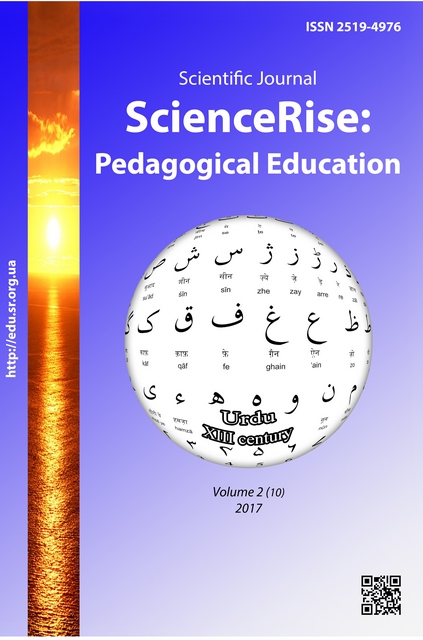Сутнісний аналіз рівнів методологування науково-професійної соціальної роботи
DOI:
https://doi.org/10.15587/2519-4984.2017.94254Ключові слова:
методологія, методологування, методологічна робота, рівні методологування, соціальна робота, професіоналізмАнотація
У статті актуалізовано важливість методології, яка є неодмінною складовою наукових пошуків науковця-дослідника, здатна визначати найважливіші думки теоретиків і практиків у процесі осягнення нових знань, чітко уможливлює та структурує складні теорії і концепції, розробляє способи та засоби задля вирішення наукових педагогічних проблем. Обґрунтовано важливість методологічного професіоналізму, котрий розкривається на різних рівнях методологування
Посилання
- Schedrovytskyy, G. P. (2000). Metodologichna organizacija sfery psyhologiji. Psyhologija i Suspil’stvo, 2, 7–24.
- Stjopin, V.; Furman, A. V. (Ed.) (2015). Naukova racionalnist u tehnogennij kulturi: typy ta istorychna evoljucija. Vol. 2. Systema suchasnyh metodologij. Ternopil: TNEU, 5–10.
- Rac, M. (2005). Mesto normirovanija i ego strategija v procesah razvitija. Kentavr, 35, 7–13.
- Rebukha, L. Z. (2005). Osoblyvosti metodologuvannja pid chas provedennja psyhologichnoji ekspertyzy. Vitakul’turnyj mlyn, 54–57.
- Melnychuk, I. (2011). Teorija i praktyka profesijnoji pidgotovky majbutnih social’nyh procivnykiv zasobamy interaktyvnyh tehnologij [The theory and practice of training of future social workers by the means of interactive technologies]. Ternopil, 584.
- Furman, A. V. (2016). Ideja i zmist profesijnogo metodologuvannja [Idea and content of professional metodologizing]. Ternopil: TNEU, 378.
- Schedrovytskyy, G. P. (1997). Filosofija. Nauka. Metodologija. Moscow: Shkola. kult. Politiki, 656.
- Zinchenko, A. P. (1994). K programme rabot po teme “Shemy i mehanizmy shematizaciji v misljedejatelnosti”. Kentavr, 1, 3–8.
- Furman, A. (2005). Rivni ta kriteriji metodologyvannia u profesijnomu zdijsnenni naukovo-doslidnoji dijal’nosti. Vitakul’turnyj mlyn, 5–13.
- Tyuptya, L. T., Ivanova I. B. (2008). Social’na robota: teorija i praktyka [Social work: theory and practice]. Kyiv: Znannja, 574.
##submission.downloads##
Опубліковано
Як цитувати
Номер
Розділ
Ліцензія
Авторське право (c) 2017 Лілія Зіновіївна Ребуха

Ця робота ліцензується відповідно до Creative Commons Attribution 4.0 International License.
Наше видання використовує положення про авторські права Creative Commons CC BY для журналів відкритого доступу.
Автори, які публікуються у цьому журналі, погоджуються з наступними умовами:
1. Автори залишають за собою право на авторство своєї роботи та передають журналу право першої публікації цієї роботи на умовах ліцензії Creative Commons CC BY, котра дозволяє іншим особам вільно розповсюджувати опубліковану роботу з обов'язковим посиланням на авторів оригінальної роботи та першу публікацію роботи у цьому журналі.
2. Автори мають право укладати самостійні додаткові угоди щодо неексклюзивного розповсюдження роботи у тому вигляді, в якому вона була опублікована цим журналом (наприклад, розміщувати роботу в електронному сховищі установи або публікувати у складі монографії), за умови збереження посилання на першу публікацію роботи у цьому журналі.









